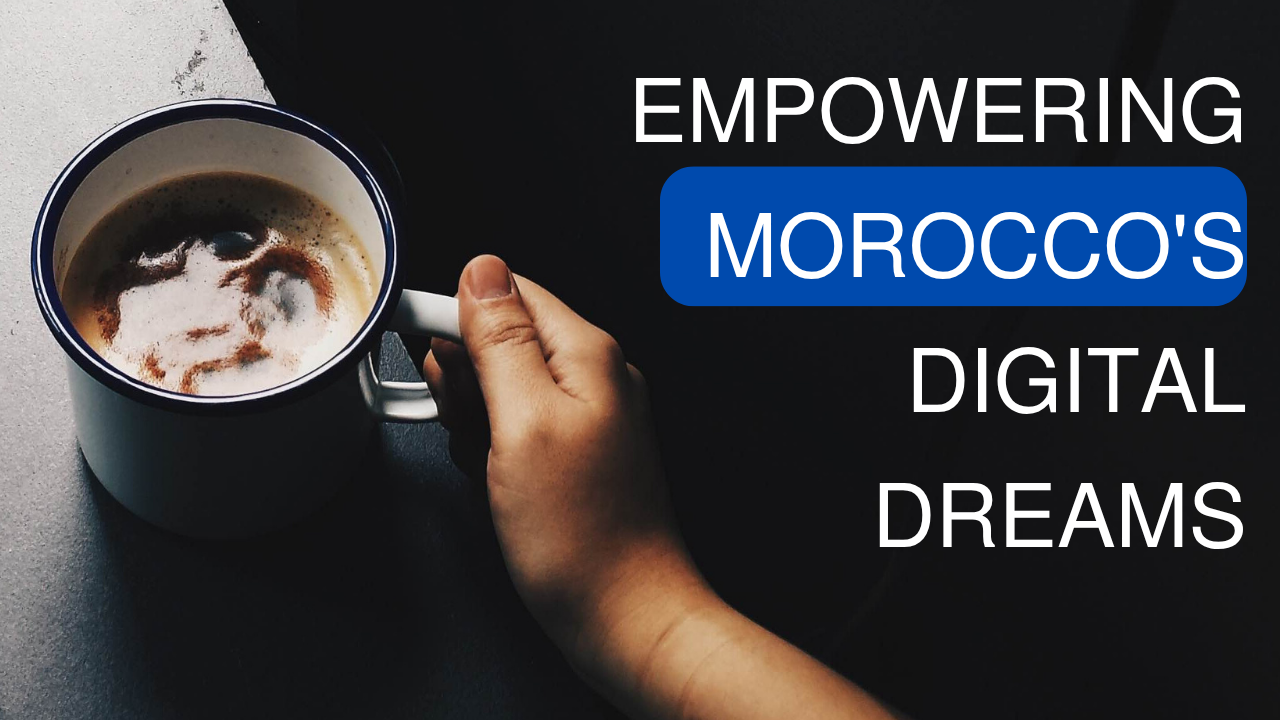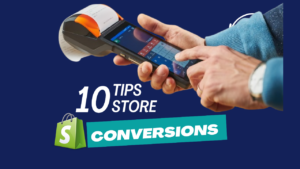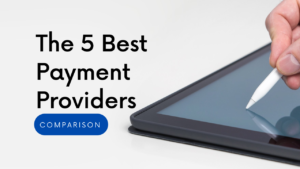
In the digitally vibrant landscape of Morocco in 2025, having an online presence is no longer a luxury but a necessity. Whether you’re a budding entrepreneur in Casablanca, a skilled artisan in Marrakech, a tourism operator in Tangier, or simply an individual with a passion to share, a website serves as your digital storefront, your global voice, and your 24/7 representative. While professional site creation agencies offer invaluable expertise, the tools and resources available today empower individuals and small businesses across Morocco to take the reins and build their own compelling websites. This guide aims to demystify the process, providing a comprehensive roadmap to creating your own online space in Morocco, tailored to the local context and leveraging the digital opportunities of 2025.
Why Build Your Own Website in Morocco?
Before diving into the “how,” let’s explore the compelling “why” for individuals and small businesses in Morocco to consider building their own websites:
- Expanding Reach and Audience: A website transcends geographical limitations, allowing you to connect with potential customers, clients, or enthusiasts not just in your local area but across Morocco and even internationally. For businesses in bustling hubs like Fes or Agadir, this opens up entirely new markets.
- Establishing Credibility and Professionalism: In today’s digital age, a website lends legitimacy to your endeavors. It showcases your offerings, provides contact information, and builds trust with your audience. A well-designed site signals professionalism and reliability, crucial for competing in the Moroccan marketplace.
- Cost-Effectiveness: Compared to hiring a professional agency, building your own website can be significantly more budget-friendly, especially in the initial stages. This is particularly beneficial for startups and small businesses operating with limited resources in cities like Meknes or Oujda.
- Complete Control and Customization: When you build your own site, you have complete creative control over its design, content, and functionality. You can tailor it precisely to your vision and adapt it quickly as your needs evolve, without relying on external timelines or approvals.
- Showcasing Your Unique Identity: Your website is your digital canvas to express your brand personality, your artistic flair, or your individual voice. You can craft a unique online experience that resonates with your target audience, whether you’re promoting local crafts in Essaouira or offering specialized services in Rabat.
- Facilitating E-commerce Opportunities: For businesses looking to sell products or services online, building your own e-commerce platform has become increasingly accessible. This allows you to tap into Morocco’s growing online shopping market and reach customers conveniently.
- Building a Community: A website can serve as a central hub for building a community around your interests or your brand. You can create forums, blogs, and membership areas to foster engagement and loyalty among your audience in Morocco and beyond.
- Learning Valuable Digital Skills: The process of building a website equips you with valuable digital skills that are increasingly in demand in the Moroccan job market. Understanding web design, content management, and basic SEO can be a significant asset.
Essential Steps to Creating Your Website:
Building a website might seem daunting at first, but by breaking it down into manageable steps, the process becomes much more approachable:
1. Define Your Purpose and Goals:
- What is the primary objective of your website? Is it to sell products, provide information, build a personal brand, offer services, or something else?
- Who is your target audience in Morocco and beyond? Understanding their demographics, interests, and online behavior will inform your design and content choices.
- What kind of content will you feature? Text, images, videos, blog posts, product listings, portfolios – plan your content strategy early.
- What functionalities do you need? Contact forms, e-commerce capabilities, booking systems, membership areas, multilingual options (Arabic, French, English)?
2. Choose Your Website Building Platform:
Several user-friendly platforms cater to individuals with varying levels of technical expertise:
- Website Builders (e.g., Wix, Squarespace, Weebly): These platforms offer drag-and-drop interfaces and pre-designed templates, making them ideal for beginners. They handle hosting and technical aspects, allowing you to focus on design and content. Many offer localized support and payment gateway integrations relevant to Morocco.
- Content Management Systems (CMS) (e.g., WordPress, Joomla, Drupal): WordPress is the most popular CMS globally, offering immense flexibility through themes and plugins. While it has a steeper learning curve than website builders, it provides greater customization options and scalability. Many Moroccan hosting providers offer easy WordPress installation. Joomla and Drupal are other powerful CMS options with their own strengths.
- E-commerce Platforms (e.g., Shopify, WooCommerce, local Moroccan platforms): If your primary goal is selling online, dedicated e-commerce platforms provide features like product management, shopping carts, secure payment gateways (integrating with Moroccan payment processors), and order tracking. WooCommerce integrates seamlessly with WordPress. Explore local Moroccan e-commerce platforms for specific regional advantages.
Considerations for Moroccans:
- Language Support: Ensure your chosen platform supports Arabic and French, the primary languages of Morocco. Many popular platforms offer multilingual capabilities.
- Payment Gateway Integration: If you plan to sell online, verify that the platform integrates with popular Moroccan payment gateways like CMI (Centre Monétique Interbancaire) or other local options.
- Local Hosting: Consider choosing a hosting provider with servers located in or closer to Morocco for potentially faster loading speeds for local visitors.
- Customer Support: Check if the platform offers customer support in French or Arabic, which can be beneficial for users in Morocco.
3. Select a Domain Name and Hosting:
- Domain Name: This is your website’s address on the internet (e.g., yourbusiness.ma). Choose a name that is memorable, relevant to your brand or purpose, and easy to spell. Check the availability of
.madomain extensions through local registrars. - Web Hosting: This is where your website files are stored, making it accessible to visitors. Numerous hosting providers offer various plans based on storage, bandwidth, and features. Compare pricing, reliability, and customer support, considering local Moroccan hosting options.
4. Design Your Website:
- Choose a Theme or Template: Most website builders and CMS platforms offer a wide range of pre-designed themes or templates. Select one that aligns with your brand and the type of website you’re building. Ensure it’s responsive (mobile-friendly), as a significant portion of internet users in Morocco access the web via mobile devices.
- Customize Your Design: Personalize the chosen theme with your brand colors, fonts, logo, and imagery. Aim for a clean, user-friendly design that is easy to navigate. Consider incorporating elements that resonate with Moroccan aesthetics if relevant to your brand.
- Focus on User Experience (UX): Ensure your website is intuitive and provides a seamless experience for visitors. Clear navigation, fast loading times, and easy-to-find information are crucial.
5. Create and Organize Your Content:
- Plan Your Website Structure: Decide on the key pages your website will have (e.g., Homepage, About Us, Services/Products, Contact Us, Blog).
- Write Compelling and Engaging Content: Craft high-quality text that is informative, relevant to your audience, and optimized for search engines (SEO). Consider writing content in Arabic and/or French to cater to a wider Moroccan audience.
- Use High-Quality Images and Videos: Visuals can significantly enhance your website’s appeal. Use clear, professional images and videos that are relevant to your content. Optimize image sizes for faster loading.
- Ensure Accessibility: Make your website accessible to users with disabilities by using alt text for images, providing captions for videos, and adhering to accessibility guidelines.
6. Optimize for Search Engines (SEO):
- Keyword Research: Identify relevant keywords that people in Morocco might use to search for your products, services, or information.
- On-Page Optimization: Incorporate these keywords naturally into your website content, titles, meta descriptions, and image alt text.
- Mobile-Friendliness: Ensure your website is fully responsive and provides a seamless experience on mobile devices, as mobile-first indexing is crucial for SEO.
- Page Speed Optimization: Optimize your website’s loading speed by compressing images, minifying code, and leveraging browser caching.
Further read : A Guide to Hiring an SEO Agency in Morocco
7. Test and Launch Your Website:
- Thorough Testing: Before launching, test your website on different browsers and devices to ensure everything functions correctly. Check for broken links, typos, and design inconsistencies.
- Get Feedback: Ask friends, family, or potential users in Morocco to review your website and provide feedback.
- Launch Your Site: Once you’re confident, make your website live!
8. Promote Your Website:
- Share on Social Media: Promote your website on relevant social media platforms popular in Morocco.
- Inform Your Network: Let your friends, family, and business contacts know about your new website.
- Consider Local Online Directories: List your website in relevant Moroccan online directories.
- Explore Local Online Advertising: Consider targeted online advertising campaigns to reach your desired audience in Morocco.
Resources and Support in Morocco:
- Online Tutorials and Courses: Numerous free and paid online resources, including platforms like Coursera, Udemy, and YouTube, offer comprehensive website building tutorials. Look for courses specifically addressing WordPress or your chosen platform.
- Local Web Development Communities: Engage with online forums and social media groups focused on web development in Morocco. You can find support, ask questions, and connect with other individuals on their website building journeys.
- Local Meetups and Workshops: Keep an eye out for local tech meetups and workshops in cities like Casablanca or Rabat that might cover website building topics.
- Government Initiatives: Explore any government initiatives or programs in Morocco that support digital literacy and the development of online presences for small businesses.
Further read : Shopify Agency in Tangier Morocco
Empowering Morocco’s Digital Future:
Building your own website in Morocco in 2025 is an empowering journey. It allows you to participate actively in the digital economy, connect with a wider audience, and share your passions or your business with the world. While it requires effort and dedication, the readily available tools and resources make it an achievable goal for individuals and small businesses across the Kingdom. By embracing the digital landscape and taking control of your online presence, you can unlock new opportunities and contribute to Morocco’s growing digital future. So, take the first step, explore the possibilities, and bring your digital dreams to life!





